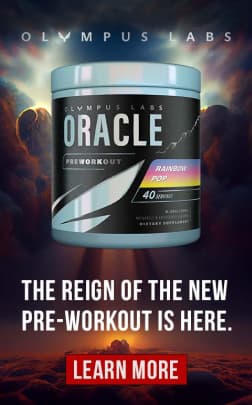D-Aspartic Acid- Will DAA Boost Your Testosterone - Everything you need to know
Posted by Dr. Karen Vieira Ph.D on Jul 05, 2019
With DAA You Can Boost Testosterone the Natural Way, No Shots Needed
Low testosterone is a common problem for men, especially later in life. It can have profound effects on a man’s life, from health to relationships to daily activities. If you are struggling with low testosterone, does this mean that your future is filled with visits to the clinic for booster shots?
Fortunately, the answer is no! Nature has given us a simple solution to low testosterone in the form of d-aspartic acid (DAA), a naturally-occurring amino acid. Clinical research has shown that supplementing with DAA can raise testosterone levels in men and improve their health in several ways.
With d-aspartic acid, you can enjoy greater strength, more energy, and better sexual health.
What is D-aspartic acid?
D-aspartic acid is an amino acid, a small organic molecule. It is similar in shape to other amino acids, which are the building blocks for proteins. DAA plays many important roles in your body’s metabolism, and is required for the proper function of several enzymes.
Aspartic acid is closely related to another amino acid called asparagine. It got its name because it was first identified in asparagus plants.

|
D-Aspartic Acid and Men’s HealthMen’s bodies require d-aspartic acid for many important functions. Low levels of DAA are linked to several male health issues. Fortunately, raising your body’s levels of DAA can be done easily by taking supplements like Vital Alchemy’s DAA Max, formerly Daa Max by Vital Labs. Here is what science shows D-Aspartic Acid is important for, and what state-of-the-art research shows that DAA supplements can help with: |
Testosterone production
D-aspartic acid can be found in many of the hormone production centers in your body, including the adrenal glands, pituitary glands, and testes. It is important for the production and secretion of different hormones, especially for testosterone. 1
Men with low testosterone also often have lower levels of DAA in their bloodstream. Supplementing with DAA can raise not just your body’s DAA level but your testosterone level as well. In just a couple of weeks, DAA supplements can raise your serum testosterone level by as much as 42%. 2
Blood flow
D-aspartic acid controls several other molecules that affect your blood flow. It increases the activity of nitric oxide synthase (NOS), which causes your blood vessels to dilate. 3 Blood vessel dilation and better blood flow promote healthy blood pressure levels and is also important for achieving and maintaining an erection.4
Reproductive health
D-aspartic acid is involved in sperm production. Infertile men with low sperm counts have been found to have lower levels of DAA than fertile men. Extra DAA can improve the health and mobility of sperm cells. 5
What people are saying about DAA Max - Reviews
Many health-minded people like you have already tried DAA Max for themselves and have been happy with the results. Here are what just a few of them thought about their experience:

|
“After the first week I felt stronger and with more energy.” – Phil “My overall bench went up by atleast 20 pounds and started to see an increase in mass and strength in other areas as well. If taken with a good excercise routine this stuff is extremely helpful to get you to the next point of your body transformation.” – Will “My energy, libido and strength are all up.” - Aaron “The welcome boost of mental clarity and focus during daily life has been great. Has really helped with more than just training.” – Robb “I've experienced all the benefits described. Energy, fat loss, sex drive, quick thinking.” – Jamie |
All-natural with no side effects, d-aspartic acid is a game-changer for men’s health. Boost your testosterone organically with DAA Max and unleash your body’s full potential.
Written by Dr. Karen Vieira Ph.D.
- Dr. Vieira graduated from the University of Florida College of Medicine and received her PhD in Biomedical Science – Biochemistry & Molecular Biology. She has worked in clinics and hospitals with patients as well as conducting research in biotechnology and molecular biology of the body. She has also worked with the largest food company in America. Dr. Vieira has won numerous awards including The Florida Institute of Technology Tri-beta Chapter’s Outstanding Undergraduate Research Award, The University of Florida Medical Guild Graduate Student Research Award – 1st Place, and Kraft Foods’ Kraft University trainer. She is also on advisory boards for several supplement companies and schools. Dr. Karen has a passion for discovering research on dietary and lifestyle changes that can cure or prevent different health conditions. http://www.karenvieira.com/
References
[1] F Roshanzamir and SM Safavi. 2017. "The putative effects of D-Aspartic acid on blood testosterone levels: A systematic review." International journal of reproductive biomedicine (Yazd, Iran). 15(1):1-10. https://www.ncbi.nlm.nih.gov/pmc/articles/PMC5340133/
[2] E Topo, A Soricelli, A D'Aniello, S Ronsini, and G D'Aniello. 2009. "The role and molecular mechanism of D-aspartic acid in the release and synthesis of LH and testosterone in humans and rats." Reproductive biology and endocrinology : RB&E. 7120-120. https://www.ncbi.nlm.nih.gov/pmc/articles/PMC2774316/
[3] MM Di Fiore, A Santillo, and G Chieffi Baccari. 2014. "Current knowledge of D-aspartate in glandular tissues." Amino Acids. 46(8):1805-18. https://www.ncbi.nlm.nih.gov/pubmed/24839076
[4] U Förstermann and WC Sessa. 2012. "Nitric oxide synthases: regulation and function." European heart journal. 33(7):829-837d. https://www.ncbi.nlm.nih.gov/pmc/articles/PMC3345541/
[5] F Giacone, RA Condorelli, LM Mongioi, V Bullara, S La Vignera, and AE Calogero. 2017. "In vitro effects of zinc, D-aspartic acid, and coenzyme-Q10 on sperm function." Endocrine. 56(2):408-415. https://www.ncbi.nlm.nih.gov/pubmed/27422792


